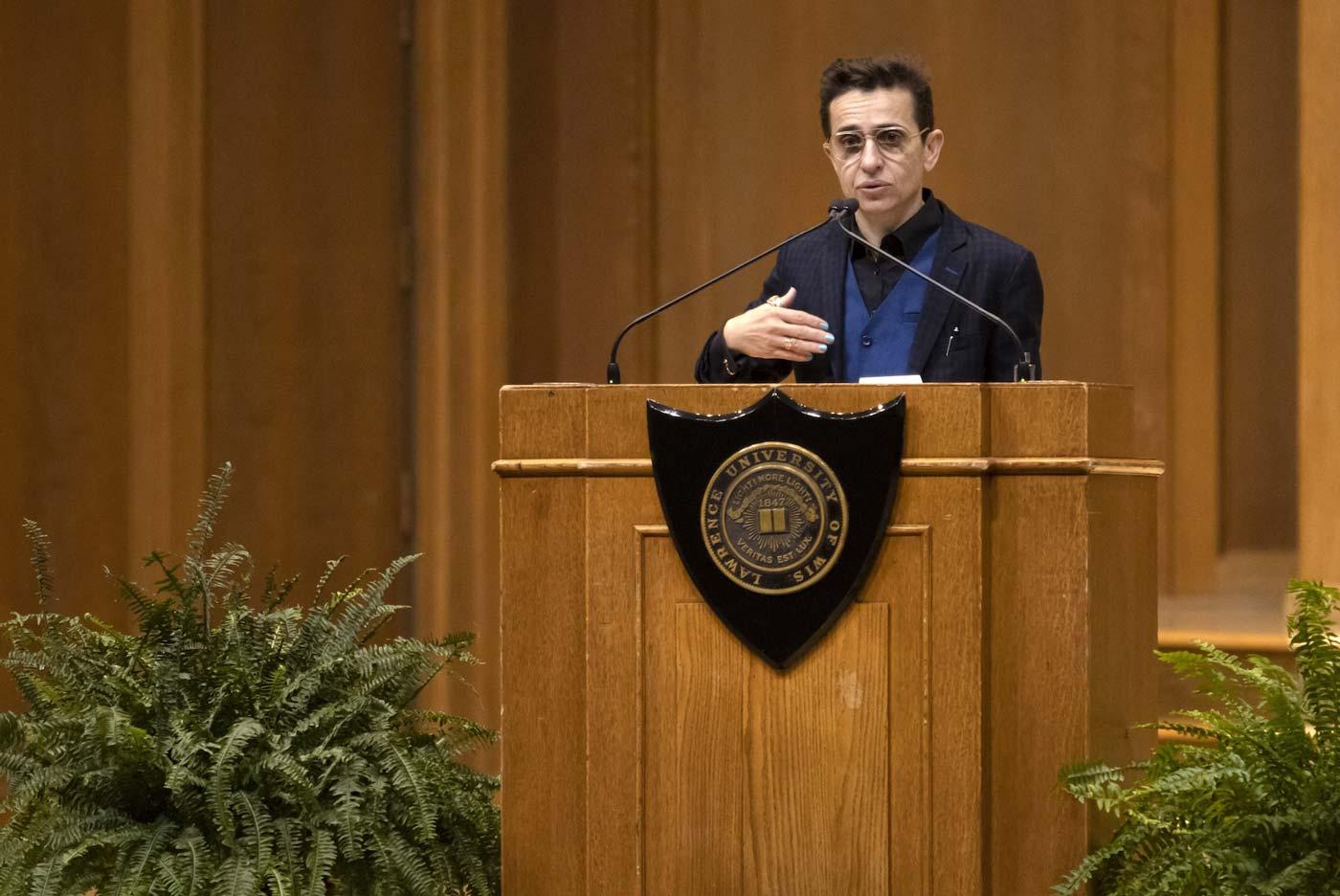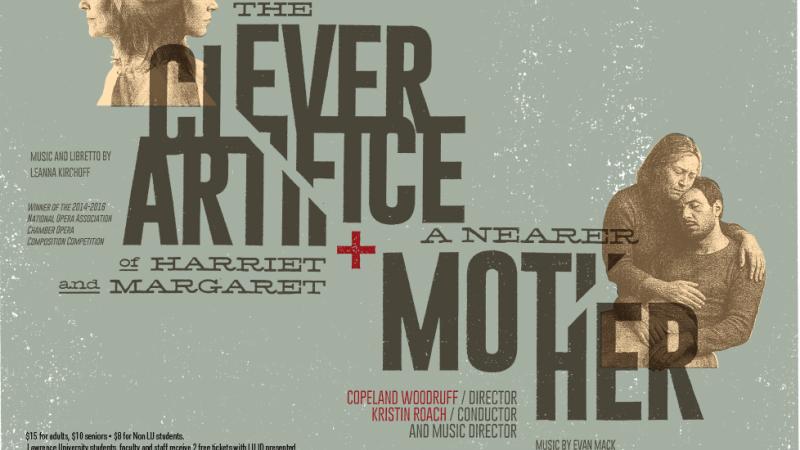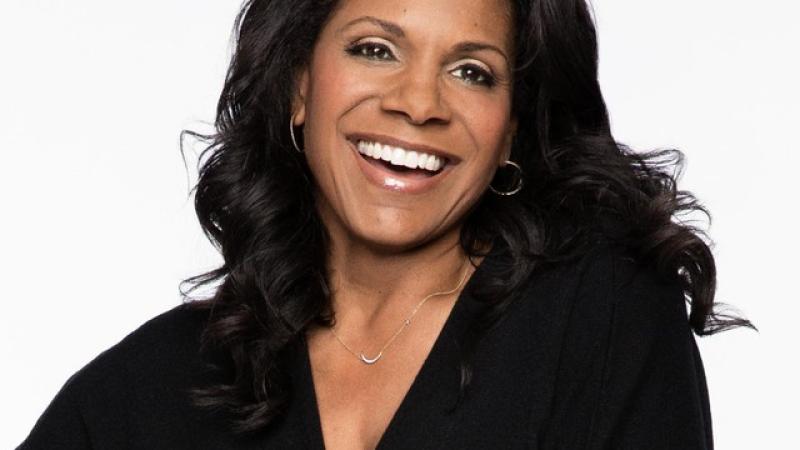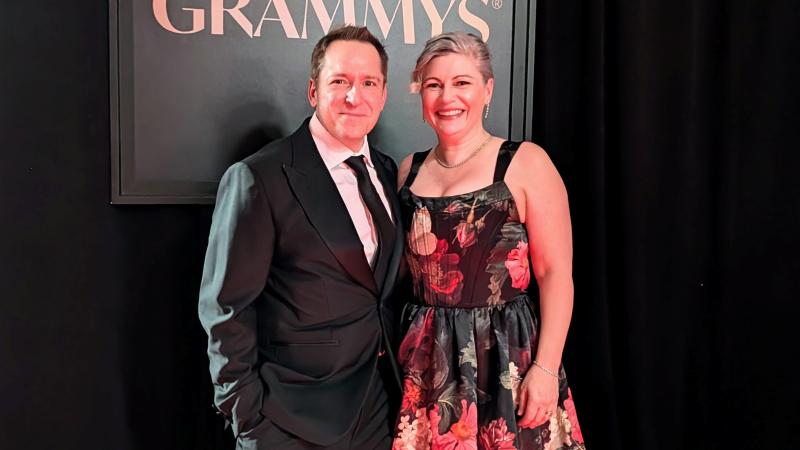Masha Gessen was up front that there would be no answers in this address. Only questions, be they political, socio-economic or otherwise.
The Russian-American journalist and author, delivering the winter term Convocation Thursday morning at Lawrence University’s Memorial Chapel, told the gathering of mostly faculty, students, and staff that in order to find answers to society’s most perplexing problems, we must first challenge our assumptions of what we think we know and then imagine a better world, a better way to connect the dots.
In other words, think. And think deeply.
Gessen is the author of more than a dozen books, including the National Book Award-winning The Future is History: How Totalitarianism Reclaimed Russia and The Man Without a Face: The Unlikely Rise of Vladimir Putin. Two more books are in the works, one coming this summer focused on the three years of the Trump presidency, and another that is still a work in progress on imaginative political projects around the world and what we can learn from them.
It was the latter that was the focus of Gessen’s Convocation address, “The Parallel Polis.” It was the second of three Convocations in Lawrence’s 2019-20 series.
A staff writer at the New Yorker and an instructor at Amherst College, Gessen is a native of Russia, relocating to the United States at the age of 14.
Some things, Gessen said, seem so straightforward, so automatic, that we stop questioning it, stop thinking about it. It was an assumption about the former Soviet Union that kicked off the conversation that is now leading to the coming book.
“It started with this assumption I was raised with that I never, ever questioned,” Gessen said. “The assumption was that, not only communism and the communist idea, but any utopian idea would always lead to totalitarianism.”
Perhaps. But perhaps there are other ways to think about it, pieces to pull from it, ideas to reimagine in a different context. Can we challenge ourselves to dive deep and explore whether our assumptions are indeed correct and absolute?
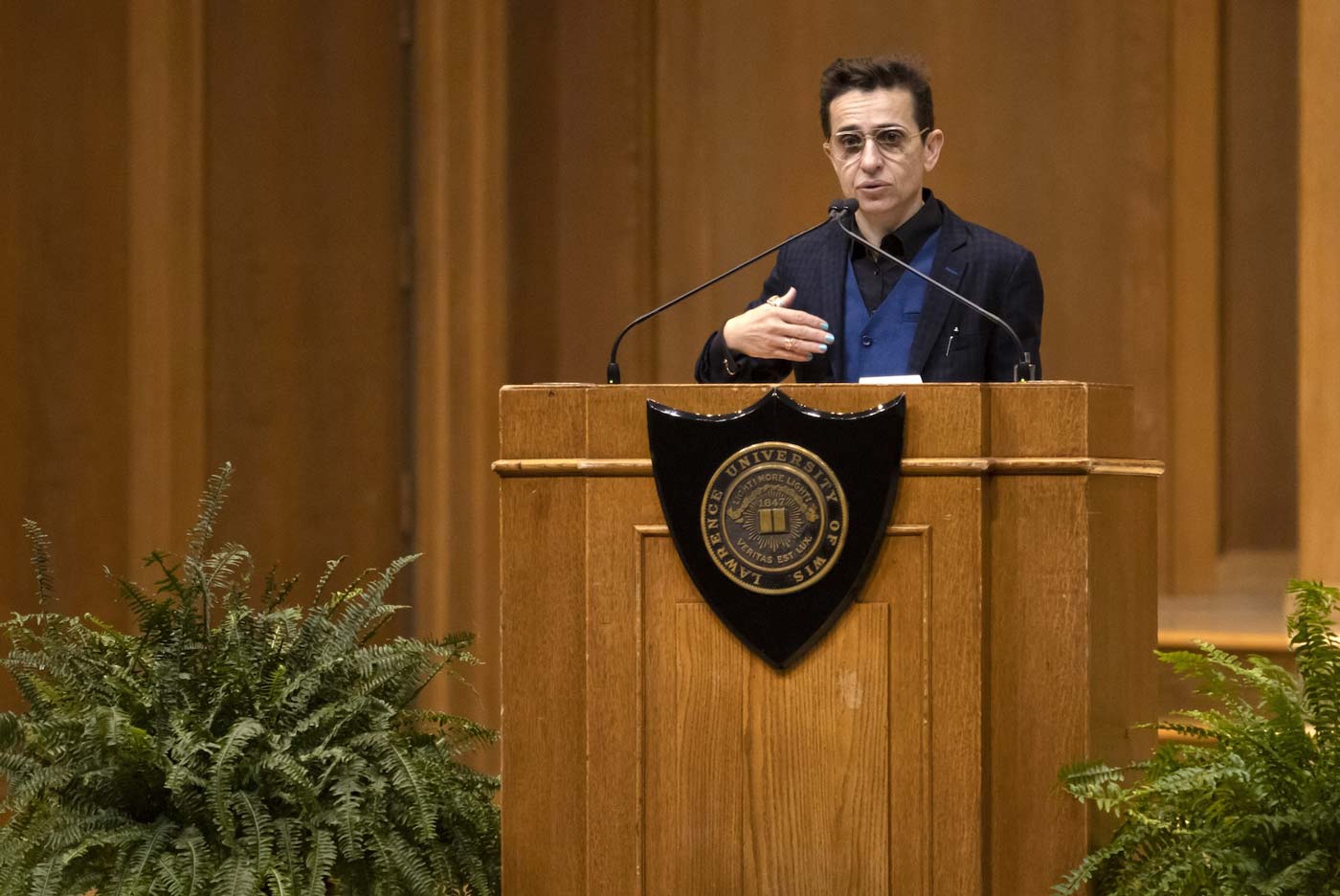
Masha Gessen: “I was looking for very disparate projects that were united by the commitment to imagining something different.”
Gessen talked about reporting around the world, from a community-based urban farm in Detroit to experiments with universal basic income in Finland, all as imaginative political projects aimed at upsetting the paradigm.
“I wasn’t looking for projects that were solving a specific problem. I wasn’t writing about the problem itself. I was looking for very disparate projects that were united by the commitment to imagining something different.”
Gessen said people working on some of these projects had a difficult time telling their stories, in part because they were imagining something that didn’t yet exist. They didn’t have a language to make sense of it, so they struggled to articulate their vision.
“It got me thinking about different ways to think about imagination, which was my ultimate topic,” Gessen said. “How do we talk about things that we haven’t invented yet?”
Imaginative thinking is where real political change happens, Gessen said.
In late 2011, early 2012, when Russia was reeling in economic turmoil and there were mass protests and talk about the fate of Vladimir Putin, Gessen started pondering imaginative thinking, or the lack thereof. No one could really imagine what would come next in Russia should Putin be gone.
“The intellectual work of imagining what would happen after is actually political work,” Gessen said. “It’s essential for something to be able to move forward. But how do you imagine something that you don’t know, and then sort of will it into being?”
More questions. All the more important to think about at what Gessen called “this particularly vexing moment in history.”
The answers won’t ever come easy.
“I think things that are right in one place are really wrong in another, which is not to say everything is relative,” Gessen said. “It’s not. But it is to say there probably aren’t universal recipes. But what’s useful is figuring out what your assumptions are and thinking really hard about those assumptions and doing some experimenting in your mind.”
